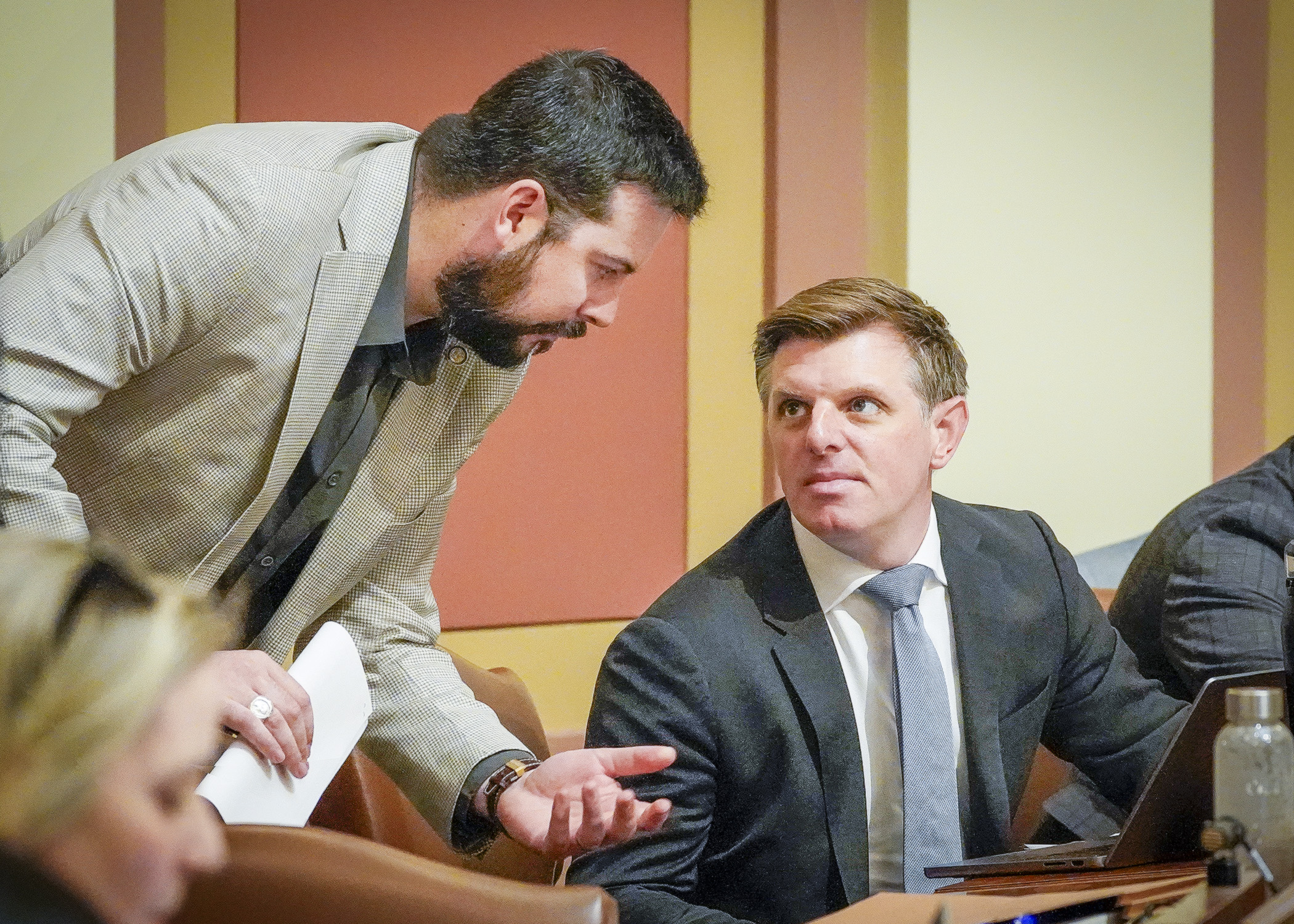Housing budget agreement headed to governor, but calls for more action persist

To its supporters, the housing omnibus budget bill passed by the House Sunday represents a step in the right direction. Many of those same legislators, however, say a giant leap in funding and policy changes is required to meet the state’s housing needs.
On a 108-26 vote, the House passed the conference committee report to HF2445/SF2298*, sponsored Rep. Spencer Igo (R-Wabana Township) and Sen. Lindsey Port (DFL-Burnsville). The Senate did the same 36-31 Saturday. It is now headed to Gov. Tim Walz.
Emphasizing three key words he called the pillars of housing policy, Igo said the bill would deliver more affordable housing by providing more diverse options helping ensure stability for more Minnesotans.
However, Igo says excessive regulation is an obstacle to meeting the state’s housing needs and that addressing that obstacle is the path forward.
Legislators hinted at areas that might be addressed in the future, such as rents charged by manufactured home parks, availability of senior housing, land-use and zoning regulations, and hedge funds outbidding families in home purchases.
[MORE: Conferees OK housing agreement]
The bill would provide $261.62 million in General Fund appropriations in the 2026-27 biennium for programs under the jurisdiction of the House Housing Finance and Policy Committee, including $77.67 million for debt service. The bill would authorize the sale of $50 million in housing infrastructure bonds.
[MORE: View the spreadsheet]
Rep. Michael Howard (DFL-Richfield), who co-chairs the House’s housing committee with Igo, said the funds will help hundreds of families, but the amount is just a drop in the bucket compared to the state’s $66 billion budget and what’s required to supply an estimated 100,000 new homes to fill current demand. He added that state funding is necessary to address the deficit, but it is not sufficient.
The bill would allocate an additional:
- $8.35 million to the Family Homeless Prevention and Assistance Program, providing emergency rental and utility assistance;
- $2 million to the Economic Development and Housing Challenge Program, supporting affordable rental housing development;
- $2 million to the Workforce Homeownership Program;
- $2 million to the Homeownership Assistance Fund, helping with down payments and closing costs;
- $2 million for Greater Minnesota Housing Infrastructure Grants; and
- $2 million for first-generation homeowner downpayment assistance grants.
Funding to provide manufactured home infrastructure grants and create a tenants’ rights hotline, originally in the House bill, are not in the conference committee report.
Policy provisions
The bill would provide incentives for communities to adopt so-called Yes to Homes initiatives, including allowing multifamily housing in most residential zones and easing requirements on minimum lot and garage sizes. Cities implementing these policies would receive a 5% scoring boost when applying for state grants, with the provision set to sunset in 2029.
Related Articles
Search Session Daily
Advanced Search OptionsPriority Dailies
Legislative leaders set 2026 committee deadlines
By Lisa Kaczke Legislative leaders on Tuesday officially set the timeline for getting bills through the committee process during the upcoming 2026 session.
Here are the three deadlines for...
Legislative leaders on Tuesday officially set the timeline for getting bills through the committee process during the upcoming 2026 session.
Here are the three deadlines for...
Latest budget forecast projects nearly $2.5 billion surplus, but red ink down the road
By Mike Cook Three weeks before Christmas, state budget officials provided some merriment to Minnesotans. However, Grinch-like transformations lurk.
Released Thursday, the November ...
Three weeks before Christmas, state budget officials provided some merriment to Minnesotans. However, Grinch-like transformations lurk.
Released Thursday, the November ...